#catholic emancipation
Text
#OTD in 1845 – Frederick Douglass delivers a speech in Belfast | ‘The Cambria Riot, My Slave Experience, and My Irish Mission’.
In 1845, as Ireland was descending into the despair of the Great Hunger, Frederick Douglass arrived for a four-month lecture tour of the island. Douglass had escaped slavery in Maryland seven years earlier, and had recently published his autobiography Narrative of the Life of Frederick Douglass, An American Slave. Douglass was greeted in Dublin, Belfast, and Cork by enthusiastic crowds and formed…
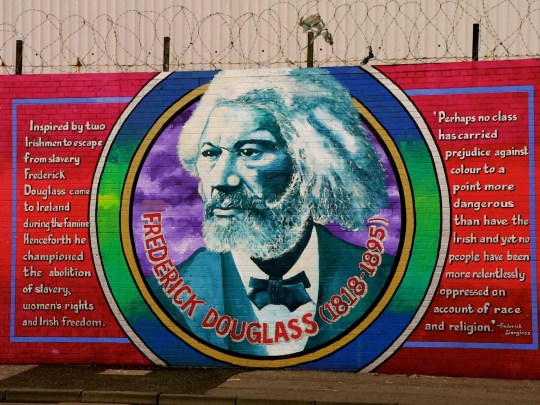
View On WordPress
#American Slave#‘Solidarity Wall’#Belfast#Catholic Emancipation#Cork#Count Daniel O&039;Connell#Dublin#Emerald Isle#Frederick Douglas mural#Frederick Douglass#Great Hunger#Slavery
7 notes
·
View notes
Text

*facepalm*
#george iv#duke of wellington#catholic emancipation#prinny noooooooo#i have so many books on this man#always some new dumbfuck thing i swear#i know you're on elephant tranquillisers mixed with brandy but ffs
5 notes
·
View notes
Text
Also relatedly it is so wild that people still suggest that edmund burke was secretly a leftist due to his support of catholic emancipation in the year of our lord 2023. megamind voice no understanding of eighteenth century religious politics?
#l + ratio + you don't know what 'supported catholic emancipation' actually means#18th century#jory.txt
14 notes
·
View notes
Text
mirielvairenen replied to this post:
So.... a dinner one-shot with the Completely Different bisexual throuples?
I haven’t read any new Austen fic in a long time, but I would absolutely read that, lmao. It would be amazing.
#elizabeth darcy and elizabeth foster are charmingly polite to each other but the wlw-wlw hostility vibes are off the scale#darcy has basically been peer pressured into good behavior by elizabeth and fitzwilliam#he sticks to talking about catholic emancipation while fantasizing about devonshire dropping dead of some unfortunate accident#fitzwilliam and georgiana actually get on super well!#pemberley having a larger park than chatsworth definitely somehow comes up at some point#<3#anghraine babbles#austen blogging#deep blogging#elizabeth x darcy x fitzwilliam#i know it's not what y'all are largely here for but it's a good ship and potentially a very funny one#/#//#///#////#/////#william cavendish (5th duke of devonshire)#elizabeth foster#georgiana duchess of devonshire#fitzwilliam darcy#colonel fitzwilliam#elizabeth bennet#fic talk#i guess lol
31 notes
·
View notes
Note
Did Wellesley consider himself Irish? I know he was born there but according to wikipedia (I'm still new to a lot of this and I'm learning more about napoleonic era) he was anglo-irish. I'm just not sure of the exact implications of that label. Thank you!
Oh don't worry about asking! This is a complicated subject - especially if you're coming at it new with little background on the relationship (aha) between Ireland and England.
Did Wellesley consider himself Irish? No. He did not. He was born there—but to English (i.e. Anglo) family who didn't identify with the Irish (at all).
Anglo-Irish are descendants of [mostly] Protestant English who came to Ireland to reinforce English control i.e. the Protestant Ascendency. And Wellesley's family was part of this colonization/subjugation of Ireland (begun formally in the 17th century, but it had been happening on/off before that). His family was part of the aforementioned Protestant Ascendency which was the political/economic/social/religious control of Ireland by the English/Anglo-Irish who made up only a very small minority of landowners/general population.
Arthur himself, and his family, identified as British (or, to a lesser extent, English). And the distinction is important! Being British, and saying that whilst holding positions of control and power in Ireland, reinforced that Ireland is/was part of the Kingdom of Great Britain, which obviously there was a lot of dissent and, uh, opposition and opinions about by the Irish themselves. (Back then and still to this day.)
When Arthur was born in 1769, in addition to the Penal Laws and other regulations and Acts, Ireland was under the The Declaratory Act, 1719 which legislated that the king and British parliament had "full power and authority to make laws and statutes of sufficient validity to bind the Kingdom and people of Ireland." It also legislated that the Irish House of Lords had no power to hear appeals from Irish courts, among other various items.
This changed in 1783 so that the British parliament gave up the right to legislate for Ireland, declaring that appeals from Irish courts couldn't be heard in courts in Great Britain. Which like...who controlled the courts and legal apparatus in Ireland at this time? The Anglo-Irish.
Then there was the Act of Union, 1800 which formally unified the kingdoms of Ireland and Great Britain to create the United Kingdom of Great Britain and Ireland. This made the 1783 Act nul and void and effectively made Ireland subject to British rule (among a tonne of other legal implications that I do not have the authority to speak to with any confidence at all).
Please, please note that this is not my area of expertise and these is very much a broad brush-stroke/nutshell summary of the situation. It's incredibly complicated and worthy of deep engagement on its own. The treatment of Ireland and the Irish by the British was horrific and the complexities of identity—civic, national, personal, religious—are hugely nuanced and I am definitely not able to do them even an iota of justice. The Irish, and historians of this particular subject, are much better placed than me.
Anyway - the long and short is no, Wellesley would have identified as British, not Irish. His family was part of the long colonization/subjugation and attempted genocide of the Irish by the English. It's a very complex subject but there are some good resources out there if you're interested in learning more!
I hope this helps!
(And anyone who is more fluent on this matter, please correct anything I got wrong. My knowledge is surface level as it was never my area of specialization in ye olde academic past-life.)
#history#ask#anon#reply#arthur wellesley#duke of wellington#19th century#18th century#To Wellesley's credit his term as PM was when catholic emancipation occurred but I mean that's really thanks to O'Donnell#O'Connell* christ autocorrect#Wellesley was also somewhat sympathetic to the Irish people - but he would not have identified with them
5 notes
·
View notes
Text
THIS CHURCH IS UNIQUE AS IT WAS NAMED AFTER A PUB
One thing that struck me as odd is that one section of the churched is fenced off … is it to protect the organ? The organ was built by T.W. Magahy in 1936 using pipework from the old Telford organ there. It was rebuilt in 1996 by Trevor Crowe Ltd.
ADAM AND EVE TAVERN
One thing that struck me as odd is that one section of the churched is fenced off … is it to protect the organ? The organ was built by T.W. Magahy in 1936 using pipework from the old Telford organ there. It was rebuilt in 1996 by Trevor Crowe Ltd. There are around 3,000 pipes in the organ, seventy of which are gilded and incorporated in the casework. It is claimed to be the…

View On WordPress
#Adam and Eve tavern#Adam and Eve’s Church#B.A. (Mus)#Catholic Emancipation in 1829#Church of the Immaculate Conception#cook street#Eoin Tierney M.A.#Fotonique#Infomatique#Merchant&039;s Quay#old Telford organ#religion#saint francis#T.W. Magahy#Trevor Crowe Ltd#William Murphy
1 note
·
View note
Note
I’m wondering if you have thoughts on James Baldwin’s “open letter to the born again”? I’m struggling a bit with what his point is in that piece; it feels kinda dismissive on Jewish zionists agency in creation of Israel? But I may be missing parts or not getting things
The text in question.
And the segment I think anon is struggling with:
I know what I am talking about: my grandfather never got the promised “forty acres, and a mule,” the Indians who survived that holocaust are either on reservations or dying in the streets, and not a single treaty between the United States and the Indian was ever honored. That is quite a record.
Jews and Palestinians know of broken promises. From the time of the Balfour Declaration (during World War I) Palestine was under five British mandates, and England promised the land back and forth to the Arabs or the Jews, depending on which horse seemed to be in the lead. The Zionists—as distinguished from the people known as Jews—using, as someone put it, the “available political machinery,’’ i.e., colonialism, e.g., the British Empire—promised the British that, if the territory were given to them, the British Empire would be safe forever.
But absolutely no one cared about the Jews, and it is worth observing that non-Jewish Zionists are very frequently anti-Semitic. The white Americans responsible for sending black slaves to Liberia (where they are still slaving for the Firestone Rubber Plantation) did not do this to set them free. They despised them, and they wanted to get rid of them. Lincoln’s intention was not to “free” the slaves but to “destabilize” the Confederate Government by giving their slaves reason to “defect.” The Emancipation Proclamation freed, precisely, those slaves who were not under the authority of the President of what could not yet be insured as a Union.
It has always astounded me that no one appears to be able to make the connection between Franco’s Spain, for example, and the Spanish Inquisition; the role of the Christian church or—to be brutally precise, the Catholic Church—in the history of Europe, and the fate of the Jews; and the role of the Jews in Christendom and the discovery of America. For the discovery of America coincided with the Inquisition, and the expulsion of the Jews from Spain. Does no one see the connection between The Merchant of Venice and The Pawnbroker? In both of these works, as though no time had passed, the Jew is portrayed as doing the Christian’s usurious dirty work. The first white man I ever saw was the Jewish manager who arrived to collect the rent, and he collected the rent because he did not own the building. I never, in fact, saw any of the people who owned any of the buildings in which we scrubbed and suffered for so long, until I was a grown man and famous. None of them were Jews.
And I was not stupid: the grocer and the druggist were Jews, for example, and they were very very nice to me, and to us. The cops were white. The city was white. The threat was white, and God was white, Not for even a single split second in my life did the despicable, utterly cowardly accusation that “the Jews killed Christ’’ reverberate. I knew a murderer when I saw one, and the people who were trying to kilI me were not Jews.
But the state of Israel was not created for the salvation of the Jews; it was created for the salvation of the Western interests. This is what is becoming clear (I must say that it was always clear to me). The Palestinians have been paying for the British colonial policy of “divide and rule” and for Europe’s guilty Christian conscience for more than thirty years.
Finally: there is absolutely—repeat: absolutely—no hope of establishing peace in what Europe so arrogantly calls the Middle East (how in the world would Europe know? having so dismally failed to find a passage to India) without dealing with the Palestinians. The collapse of the Shah of Iran not only revealed the depth of the pious Carter’s concern for “human rights,” it also revealed who supplied oil to Israel, and to whom Israel supplied arms. It happened to be, to spell it out, white South Africa.
Well. The Jew, in America, is a white man. He has to be, since I am a black man, and, as he supposes, his only protection against the fate which drove him to America. But he is still doing the Christian’s dirty work, and black men know it.
My friend, Mr. Andrew Young, out of tremendous love and courage, and with a silent, irreproachable, indescribable nobility, has attempted to ward off a holocaust, and I proclaim him a hero, betrayed by cowards.
For context: Andrew Young, considered the right hand of MLK Jr, had a longstanding and occasionally fraught relationship with the Jewish community. He stepped down from Congress shortly after being forced to choose between voicing support for Palestine and continuing to work towards black-jewish interests by his constituents and fellow politicians, as he felt very strongly about supporting both. This was a fairly unpopular move. While I don't believe he ever called himself Jewish by the strictest sense, he was actively involved in Jewish communities and the known "white" ancestry within him is a Polish Jew in his great grandparents.
To be honest, I don't really see much a problem with this as I think it fairly closely matches up not only with my understanding of the history of this problem but also my own country's part in it as well as my personal feelings on it decades later. It pretty blatantly says that Zionism is utilizing a machination of white supremist colonism due to the extensive history of antisemitism and having had the ancestral land dangled in front of them like bait on a hook from the British Empire, which owned Palestine at the time. It also goes on to say that many Zionists aren't even Jewish and are antisemitic in nature, but are Christians happy to get rid of as many Jews as possible and how that tracks due to the Christian church's millennia-deep history of antisemitism.
I don't think it lets anyone off the hook. I think it pretty much flat out says this is a problem caused first and foremost by white Christians who hate Jews and Arabs alike and have a vested interest in getting the two populations to fight because it'll be easier to kill off just the one group instead of both of them, if one ends up eradicating the other. It even talks about the friction between the black community and the Jewish community, what caused it, what drives it, how that friction in itself is a tool of white supremacy to hurt us both.
219 notes
·
View notes
Note
Someone on Twitter asked who was the British politician who has harmed the British people the most. Of course all the answers were modern politicians - the earliest suggestion was James Callaghan. Looking further back in history, who were the really bad British politicians?
In order to not answer this with a long list of "History's greatest colonialist monsters," I'm going to focus on just the ones who had a negative effect on "the British people," and in order to not answer that with a long list of "the history of English oppression of the Irish," I'm going to focus on just harm done to "the people who lived in what is currently the U.K." I am well aware that this is highly restrictive, but I don't have the time to write a complete history of Britain.
So who's on my shortlist?
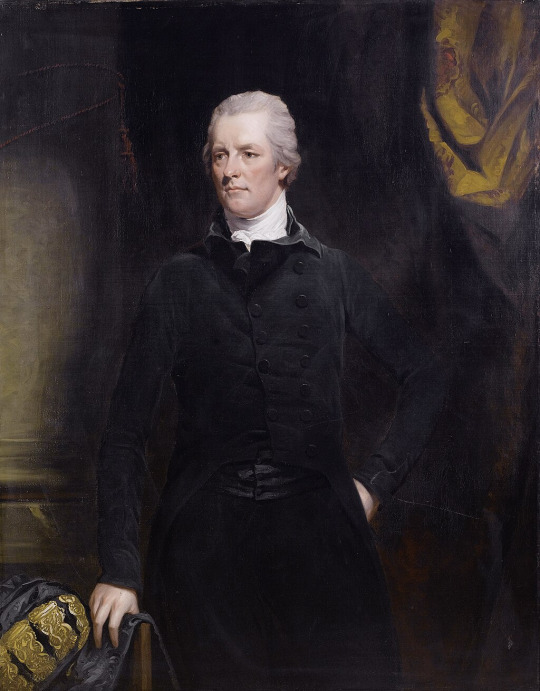
Pitt the Younger. Fought the Napoleonic Wars on the backs of the poor while violently suppressing any dissent with a police state. He passed the Treason Act of 1795 to criminalize dissent, the Seditious Meetings Act of the same year to criminalize public assemblies, spied on pretty much anyone who wasn't an arch-Tory, suspended the writ of habeus corpus, and passed the Combination Act of 1799 to criminalize trade unions. In a just world, would have died on a guilottine in Trafalgar Square.
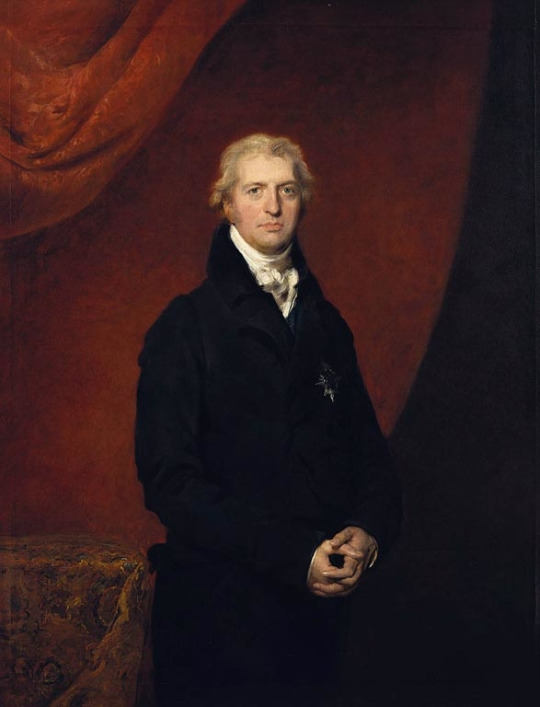
Lord Liverpool. In the wake of the Peterloo Massacre which he was absolutely responsible for, passed the Six Acts to allow the government to search people's houses for arms without a warrant, arrest and transport people for owning weapons or attending a meeting that was deemed to involve unlawful military drilling, reduced due process, shut down all public meetings that involved politics or religion, arrest and transport anyone who wrote anything that criticized the government or Christianity, and heavily tax and impose bonds on newspaper publishers. In a just world, the Cato Street Conspirators would have exercised better tradecraft and assassinated him and his entire government.
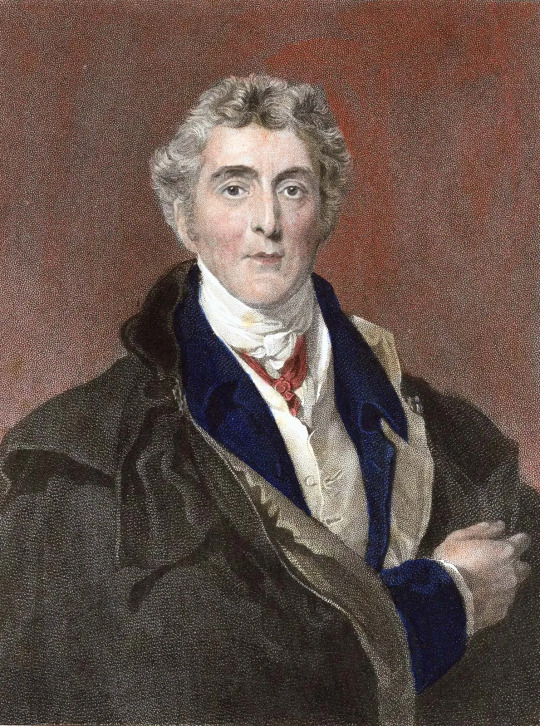
Arthur Wellesley, the Duke of Wellington. Followed up his victory in the Napoleonic Wars by fighting a war against the British people. Arch Tory bastard, adamantly opposed any political Reform that would enfranchise ordinary people, and opposed Jewish emancipation while supporting Catholic emancipation. To be honest, I wish the mob had torched Apsley House with him inside when they had the chance.
As for the runners-up?
Bonar Law, Stanley Baldwin, and Ramsay fucking MacDonald for dropping the Geddes Axe and then subjecting British workers to twenty years of crippling austerity and repression.
83 notes
·
View notes
Text
As someone who had to study Czechoslovak relations before World War I in excrutiating detail (elective course, for the sweet, sweet credits), you can't even imagine my endless frustration with foreign history enthusiasts and their wonder at the whole idea of czechoslovakism.
Like. In the 19th century the idea that Czechs and Slovaks are one nation was THE NORM in Czech circles. Even within Slovak national movement, there were plenty of proponents of this idea - Kollár and Šafárik, for one. Slovak nation had no prior history of independence, zero nobility and very little in terms of elites (mostly minor clergy and urban intelligentsia, classes which prior to 18th century had almost no political power). Add to this the fact that since the Reformation, Slovak protestants (who were a minority, but still had a respectable literary culture post-emancipation by Joseph II.) used Biblical Czech, which was closer to Slovak than modern Czech, for religious purposes, and that at first there actually wasn't any commonly-accepted literary Slovak, only a cluster of dialects... And you can see that the idea that Slovaks are a distinct nations from Czechs was hardly obvious to a 19th century observer.
This is not to diminish the hard work of Slovak catholics and later Štúr's group (which included both catholics and younger protestants) at establishing a unified Slovak language and culture - especially since the victory of Štúr's Slovak was very much a result of organic growth untethered to any government mandate. The belief in an independent Slovak nation was very much just that popular within Slovak intelligentsia and was spread among the lower classes trough hard work; many modern leftists could marvel at the wide scope of activism that these 19th century nationalists engaged in. The idea of Slovak nation persisted despite extreme pressure from the Hungarian government to hungarize, which in and of itself is truly admirable. And yes it was incredibly ignorant of the Czech elites to dismiss Štúr's reform as "separatism". But. That doesn't change the fact that among Czechs, the idea of Slovaks as separate from them was only adopted very slowly. Heck, you had Czech people in the late 19th century being like "uhm, that's a nice language you have over there, very useful for common speech and literature and stuff, but can you please use Czech in your scientific works at least, because this new tongue honestly isn't well-developed enough for that..."
And yes czechoslovakism was very useful politically, which Masaryk, ahead of his time as he was, realized, and yes Masaryk's roots among Moravian Slovaks probably gave him a good view of the grey area between the two nations. But like. Can we just stop pretending it was some kind of novel idea, when a united Czechoslovak nation was in parts of both national movements the default from which the autonomous existence of Slovaks had to be established?!
Especially the whole "it was just a cynical ploy to outnumber Germans" thing. Yes, that's what partly motivated Czech politicians at that specific moment, but it's kinda unreal to reduce the idea of czechoslovak unity to that, when in the 1880's you literally had some Czech writers wax poetically how Slovaks are their brothers, how beautiful Slovakia is and how unfairly they are treated by Hungarians in the least cynical way possible.
#random history#čumblr#ťumbľr#slovakia#czech republic#'member Českoslovanská jednota?#Českoslovanská jednota was rad#čumblr and ťumbľr should unite#and call ourselves Českoslovanská jednota
99 notes
·
View notes
Text
“Anti-Catholic racism was never a thing!”
My brother in christ, there was once a holiday in the 13 colonies called “Pope’s Day” which equated the Pope to the Anti-Christ.
also prior to the civil war there were roughly 200 books published in america by protestant authors, some of them rather famous, advocating for violence against catholics as a result of the British Catholic Emancipation Act giving irishmen civil rights. many of these involved replacement theory and depicted nuns as sex slaves, because of course horny men can’t help projecting their desires on saintly women. it got so out of hand that they started to be considered a form of pulp fiction.
And in the 1890s 11 italian catholic were lynched at the same time in lousiana for a crime they didn’t commit.
and in the early 20th century one of the primary targets of the ku klux klan were Catholics (along with Jews, Blacks, and Asians), resulting in vandalism and boycotts of business that merely employed even a single catholic employee. their newspapers regularly published articles claiming that the catholics and jews were plotting together to take over the us government.
and when JFK was elected president, a man who could only barely be considered culturally catholic, mainstream american society threw a fit claiming that the Pope was about to take control of the government. which of course he didn’t because that’s not how the government works.
and prejudice against mexican catholics persists to this day. not to mention rumors of the US government sterilizing mexican women crossing the boarder.
in 2020 alone, 172 cases of vandalism against Catholic Churches throughout the US were reported, including at least one stolen tabernacle and a desecrated host. over a protest that WASN’T EVEN REMOTELY RELATED TO THE CHURCH.
and now you yourself are freaking out because the supreme court has catholics in it.
dang brian, both historically illiterate AND racist. and i thought you were “woke”.
793 notes
·
View notes
Photo
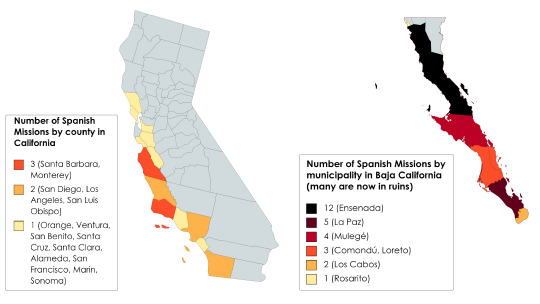
Number of Spanish Missions in California and Baja California by county/municipality
by mexidominicarican8
<div class="md"><p><strong>California:</strong></p> <p>The Spanish missions in California formed a series religious outposts or missions established between 1769 and 1833 in what is now the U.S. state of California. The missions were established by Catholic priests of the Franciscan order to evangelize Indigenous peoples backed by the military force of the Spanish Empire. Civilian settlers and soldiers accompanied missionaries and formed settlements like the Pueblo de Los Ángeles. Indigenous peoples were forced into settlements called reductions, disrupting their traditional way of life and negatively affecting as many as one thousand villages</p> <p><strong>Baja California:</strong></p> <p>The Spanish missions in Baja California were a large number of religious outposts established by Catholic religious orders, the Jesuits, the Franciscans and the Dominicans, between 1683 and 1834 to spread the Christian doctrine among the Indigenous peoples living on the Baja California peninsula. The missions gave Spain a valuable toehold in the frontier land, and introduced European livestock, fruits, vegetables, and industry into the region. Indigenous peoples were severely impacted by the introduction of European diseases such as smallpox and measles and by 1800 their numbers were a fraction of what they had been before the arrival of the Spanish.</p> <p><strong>Mexico:</strong></p> <p>The First Mexican Republic secularized the missions with the Mexican secularization act of 1833, which emancipated indigenous peoples from the missions. Mission lands were largely given to settlers and soldiers, along with a minority of indigenous people. Most of the missions in Baja California were abandoned and are currently in ruins. Cities like Loreto, Mulegé, La Paz, and San José del Cabo were formed near/around Spanish missions</p> <p><strong>USA:</strong></p> <p>Many of these missions were restored in the mid 20th century. They have become a symbol of California, appearing in many movies and television shows, and are an inspiration for Mission Revival architecture. Concerns have been raised by historians and Indigenous peoples of California about the way the mission period in California is taught in educational institutions and memorialized. The oldest European settlements of California were formed around or near Spanish missions, including the four largest: Los Angeles, San Diego, San Jose, and San Francisco.</p> </div>
60 notes
·
View notes
Text
#OTD in 1581 – The Wexford Martyrs were hanged, drawn and quartered.
The Wexford Martyrs were Patrick Cavanagh, Matthew Lambert, Edward Cheevers, Robert Tyler and two others whose names are not known. They were found guilty of treason for aiding in the escape of James Eustace, Viscount Baltinglass. James Eustace, whose family had links with Clongowes Wood Castle, now a Jesuit boarding school near Dublin, joined the Earl of Desmond in the hope of putting Mary,…

View On WordPress
#Catholic#Catholic Emancipation#Church of England#Dublin Martyrs#England#Ireland#Irish History#King Henry VIII#Oath of Supremacy#Oliver Cromwell#Oliver Plunkett#Pope#Pope John Paul II#Pope Paul VI#Queen Elizabeth I#Rome#Wexford Martyrs
6 notes
·
View notes
Text
Bram Stoker and Irish independence
I keep seeing posts popping up in the Dracula Daily tag about Bram Stoker being Irish, implying that we can draw conclusions from that about his politics, his attitude towards Britain, or the British Empire as a whole. I thought it might be useful to provide a bit of context.
Standard disclaimer: I'm not a historian and this period of Irish history is very complicated. I'm going to do my best but this will be a simplification, because otherwise an already long post would become a novel.
Less-standard disclaimer: I'm only going to go into some of Bram Stoker's views here. Others, such as his egregious racism, obviously also have a bearing on his views on empire... but again, a novel.
A very brief history of Ireland in the 19th century
god i have no idea how to simplify this
OK let's go. At the start of the 19th century, Ireland was a primarily Catholic, Irish-speaking country ruled by a primarily Protestant, English-speaking minority. The bulk of the Irish population faced colonial discrimination in a host of different ways, from restrictions that promoted English trade over Irish trade to laws that restricted Catholics from holding public office. The result was a long series of rebellions and risings against British rule, most recently in 1798. Though there was slow progress towards Catholic emancipation, especially in the 1820s.
In the 1840s, a potato blight affected the Irish staple potato crop. The British response - providing very little in the way of famine relief and continuing to export other crops from Ireland to Britain - turned a natural disaster into a genocide. A million people died and roughly twice that number emigrated. Ireland has yet to recover to its pre-Famine population.
A long-term consequence of the Famine was the decline of the Irish language. Irish-speaking areas were among the worst affected, and by 1900, Ireland was majority English-speaking. Another contributing factor was establishment of National Schools from the 1830s onwards, in which students were prohibited from speaking Irish.
In the second half of the 19th century, different movements arose to address these problems. There were campaigns for land rights, to protect tenant farmers; there was a movement to revive Irish culture and the Irish language; and there were different campaigns for how Ireland should be governed.
Independence was advocated for by groups such as the IRB, who supported taking up arms for complete freedom from the British Empire. Among the landed middle classes who were able to vote, this was a fringe position in the second half of the 19th century.
Home Rule was the idea that Ireland should remain in a union with Britain, under the British Crown, but that an independent Irish government should have complete control over domestic matters. This was the mainstream nationalist position in the late 19th century, and was the position of most of the Liberal Party in the UK.
Unionism was support for the status quo, and opposition to any devolution of power to Ireland. This was the position of the Conservative (Tory) Party in the UK.
In elections in the 1850s, Irish voters (male landowners only) were relatively split between Liberals and Tories. But by the 1870s, even this unrepresentative group of people voted overwhelmingly for the new Home Rule Party and its successor the Irish Parliamentary Party. That remained the majority view of Irish nationalists until WW1.
The leader of the Irish Parliamentary Party, Charles Stewart Parnell, persuaded Liberal PM William Gladstone of the importance of Home Rule. In 1886, Gladstone introduced a Home Rule bill to Parliament, but it was defeated in the House of Commons by 30 votes, causing Gladstone to lose power. In 1890, Parnell was revealed through a divorce case to be in a relationship with a married woman, causing a scandal that split his party. In 1893, after Parnell's death, Gladstone was returned to power and attempted a second Home Rule bill, which passed the Commons but was defeated in the Lords.
And that's the context in which Bram Stoker wrote Dracula.
Bram Stoker's views on Home Rule
The starting point is that we don't know a huge amount about Stoker's views on anything. The Irish Times describes him as "so private we know little of his life." Here's a bit of what we do know.
He was a Protestant from a comfortable middle-class background. Here's where he grew up:

He studied at Trinity College Dublin, which Catholics were barred from attending (by their own leadership) on the grounds that attendance constituted "a moral danger to the faith of Irish Catholics." There, he would have been surrounded by committed Unionists; Trinity was its own parliamentary constituency and voted for Conservative MPs long after the rest of Ireland was supporting Home Rule.
At the same time, he was making friends with nationalists such as John Dillon and described himself as a "philosophical Home Ruler". (Source, which is amazingly comprehensive on the events of Stoker's life).
He must have liked that phrase, because when he wrote his Personal Reminiscences of Henry Irving, published in 1906, he was still using it:
We were all, whatever our political opinions individually, full of the Parnell Manifesto [published 1890 after the divorce scandal and attacking Gladstone] and its many bearings on public life. For myself, though I was a philosophical Home-Ruler, I was very much surprised and both angry at and sorry for Parnell's attitude, and I told Mr. Gladstone my opinion. He said with great earnestness and considerable feeling:
"I am very angry, but I assure you I am even more sorry."
I was pleased to think - and need I say proud also - that Mr. Gladstone seemed to like to talk politics with me...
Above all his admiration for Gladstone, and pride in having him as a friend, shines through in this section.
Different sources interpret what a "philosophical Home-Ruler" is differently. It may be "one who accepted Home Rule as more necessary than ideal" or supporting "Home Rule brought about by peaceful means"; either way, it seems his support for Home Rule was qualified, not full-blooded.
Overall Stoker held a mainstream view, neither adamantly pro-independence nor a defender of the status quo in Ireland. He also seems to have been quite happy to maintain friendships with people who disagreed with him, whether they were Tories or more radically pro-independence.
This is less exciting than takes that I've seen out in the wild, such as "Bram Stoker hated the British Empire and that's why Dracula attacks English people". But it seems to be what the evidence bears out.
96 notes
·
View notes
Text

The number of plot twists in this sentence
#the 12th was celebrated... by the volunteers. they paraded... FOR catholic emancipation#reading#irish history#jory.txt
2 notes
·
View notes
Text
Mickey's Coming Out (4x11) / Lover You Should've Come Over, Jeff Buckley
I've always felt this song, particularly these couple verses to be quite queer-coded! I'm pretty sure this song is about cheating but, in these moments, we hear the singer talk about the sacrifices he would make for his lover and lament over what he believes to be the never-ending nature of their love. This sentiment can be echoed by the queer community, especially when considering instances in which people with homophobic/transphobic families have chosen to come out and jeopardize their past relationships to live as their truest self.
So! How does it relate to Ian and Mickey, you may ask? Here's some examples below based specifically on Mickey's coming out scene in Season 4 episode 11, 'Emily'. You can listen to the song here.
My kingdom for a kiss upon her shoulder

Mickey’s kingdom is his family. Seemingly dozens of Milkovich brothers and cousins and uncles can be seen at Terry’s homecoming party, all sharing a similarly violent and thuggish attitude to the patriarch himself. It was from these people that Mickey learnt his volatility and who bred his affinity for violence, making his declaration even more polarizing.
"I'm fucking gay."
Despite speaking with the patois of his family, by publicly sharing his sexuality Mickey essentially emancipates himself from the Milkovich’s. Based on his facial expression as he watches Ian begin to walk out of the door of the Alibi, he finds himself at a crossroads and faces losing Ian, or his family. In choosing to express his love for a man he forfeits his kingdom and the possibility of ever pleasing his father, something that despite not being verbally admitted to is undoubtedly a goal all Terry’s kids reach for, if not just to stop the abuse.
The notion that the singer gives up their kingdom for a mere kiss, not even upon his lover’s lips but merely on her shoulder, provides us with an understanding of the devotion which they feel towards her. To give up so much for seemingly so little. This allows us to harness Mickey’s point of view for a moment; not only does he essentially give up his place in his family to stop Ian walking out the door and out of his life, but he burns it to the ground, all guns a-blazing. Milkovich-style, no matter what Terry will think of him after this. Ian is worth it to him.
The use of 'kingdom' is an important lexical connotation here also as it could also refer to the kingdom of God aka Heaven in the Christian and Catholic religions, meaning that when individuals choose to come out they are abandoning his Kingdom to live freely and comfortably in their sexuality. Of course, I do not believe that homosexuality or queerness in any of its forms is a sin, I only add this as a footnote to further highlight the undertones of the song and add cultural meaning.
All my riches for her smiles

Whilst echoing the sentiment of the previous line about sacrifice for love, I’d like to touch an alternative perspective, being that the subject of the song represents Mickey’s wife Svetlana and his father Terry, as opposed to Ian. Over the duration of season four, Mickey grapples with gaining a wife and child, neither of which he consented to and having to develop a family life under these circumstances where at every turn he is denied his freedom and selfhood. In this case, his personal wellbeing (his ‘riches) are sacrificed to play house with Svetlana and keep his father happy. Based on the events of 3x06, the viewers are aware of Terry’s extreme, violent disdain for Mickey’s homosexuality and fear the possibility pf this cropping up again as much as Mickey and Ian themselves. Thus, from a storyline point of view, at the emotional climax of the pair’s storyline this season, it only makes sense that this elephant in the room finally blows its trunk. Besides Ian's ultimatum which leads to Mickey's coming out at one of many emotional cruxes of the episode, his unwillingness to continue living a manufactured life was undoubtedly a factor also.
It's never over

This scene is one of many in which the pair spend their screen-time blood-soaked. As previously mentioned, it was with almost sheer certainty that Mickey understood the physical ramifications that his announcement would have. Any booze filled Milkovich event is bound to have a tousle or two, so add a freshly freed Terry and an announcement of his very own son being gay? Bound to be a bloodbath. While the final iteration of "it's never over" remains the same lyrically, Buckley belts the line out. Metaphorically, Mickey does the same. By antagonizing his father while bent over a police car, (read: "Guess what we been doin', daddy? We've been fuckin'!) he acknowledges that yes, his father will always be a terrible man who will never accept him. Concomitantly, he comes to the realization that his phase of hiding is over, which gives him the gusto he needs to be so bold in the face of Terry after all this violence.
All my blood for the sweetness of her laughter
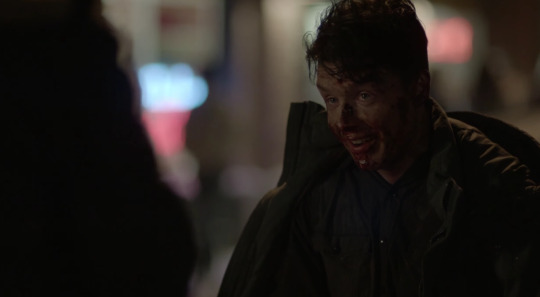
When Mickey makes Ian laugh, his eyes light up in a way that is not often seen in the show. For once, it seems, part of his shell has broken, and he is freer than we have seen him thus far in the show. To be able to sit there in such sorry circumstances and accept the physical affection he would usually meet with sharp rejection must certainly dull his pain and help him come to terms with the ways in which his life has been permanently altered.
♡♡♡
@gallavichmeta I really hope you see this and have a read! I worked hard on writing this and stringing my ideas on the parallels between the song and the scene together :,)) Just a bit of fun to think about how seemingly seperate things can actually have common themes!
And a thank you to @iansw0rld for giving this a read-over and giving me a lil confidence boost too :) <3
Yes, Mickey would die for Ian. But here, he says: I will live for you.
#gallavich meta#shameless#jeff buckley#ian gallagher#mickey milkovich#coming out#queer theory#lyrical analysis#scene analysis
18 notes
·
View notes
Text
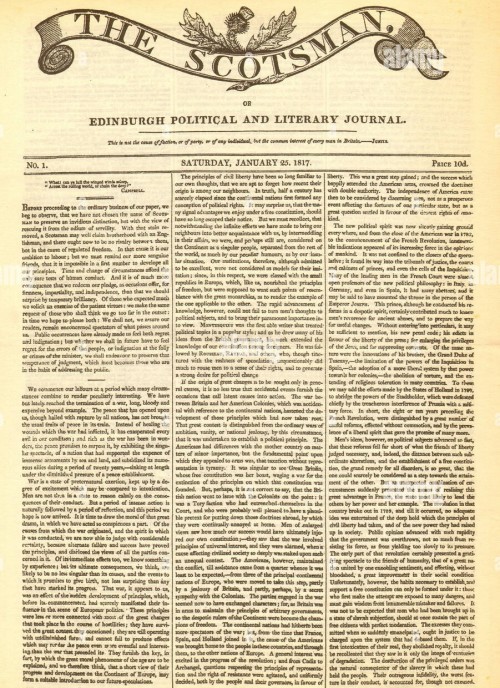

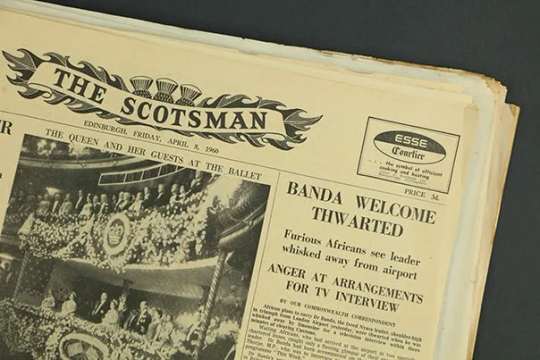
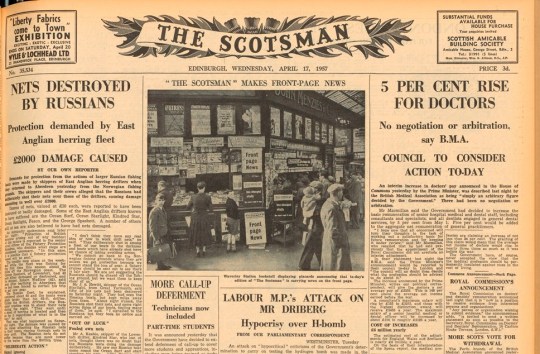


On 25th January 1817 The Scotsman first published.
Most appropriately the Scotsman was launched on 25th January, Robert Burns’s birthday, in 1817. Founded by two determined, opinionated men, William Ritchie, a solicitor and Charles Maclaren, a customs official who felt there was no public platform for independent, outspoken views. Ritchie had wished to write a story about the mismanagement of the new Royal Infirmary which the city newspaper refused to print. The answer was to publish such stories himself and The Scotsman began as a weekly Saturday paper, at a cost of tenpence, including 4d stamp duty. With a Liberal standpoint it aimed to offer, “impartiality, firmness and independence”. The estimated circulation was 300 copies but soon interest grew and a Wednesday edition was also published.
There were however a few enemies, such as the several indignant Town councillors and a Scottish lord, who described it as “that incendiary newspaper”. Co-editor Maclaren strengthened the Scotsman’s editorial viewpoint by supporting parliamentary reform, Catholic emancipation and other national controversies such as the Disruption in 1843 over the right of Church of Scotland congregations to choose their minister.
Increased sales took off in 1855 when advertisement and newspaper stamp duty were abolished. The Daily Scotsman was published, priced at one penny, with front page advertisements and a circulation of 6,000 copies. Ten years later the “daily” was dropped and sales increased to 17,000 a day.
The Scotsman was mainly an Edinburgh paper and while stage coaches delivered the paper further afield it was the railway which developed circulation even more. From 1865 the Scotsman made a deal with the railway companies to carry the paper for a carriage fee.
Within a few years it became the first British paper to run special early morning high -speed trains from Edinburgh to Glasgow. Loaded at Waverley Station the train had a carriage bearing the newspaper’s livery and during the journey west, packers made up parcels which were thrown out at various stations enroute. The time lapse from publication to arrival in Glasgow was only 70 minutes so that Glaswegians could sit down over breakfast to read their copy at the same time as those in Edinburgh.
Acording to figures the newspaper has an audited print circulation of 8,762 for July to December 2022., from a high of over 20,000 in the 90′s.. I use it's website now and then for research, the majority of their articles are now behind a paywall, but most times I get round it by using the Tor browser. 😜
14 notes
·
View notes